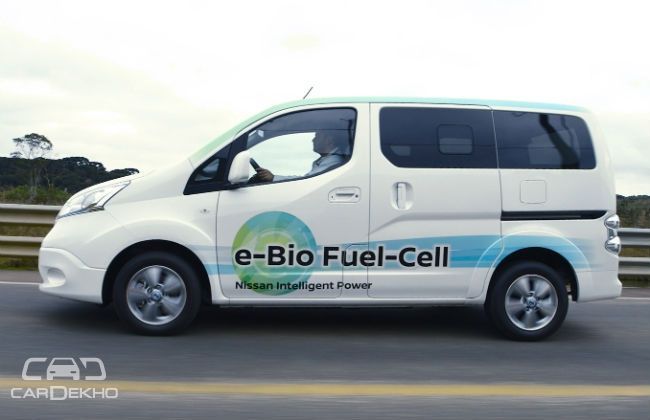Nissan Showcases Solid Oxide Fuel Cell Technology
Published On Dec 16, 2016 02:24 PM By Rachit Shad
- Write a comment
The prototype vehicle made its debut in August 2016

All of us know that non-renewable sources of energy are running out and we are burning them to poison our own atmosphere. Almost every machine that we use today is directly or indirectly contributing to air pollution. While many industries are striving to reduce their carbon footprint with better energy utilization, the automotive industry has been working towards electrified autonomous vehicles.
Carmakers around the world are working towards perfecting hybrid powertrains or hydrogen fuel cell technology to power their future automobiles. Nissan too has a fully electric vehicle, the LEAF, which is the best-selling car in its category. However, the Japanese car firm has been working on a technology based on Solid Oxide Fuel Cell (SOFC). The SOFC-powered prototype vehicle made its global debut in August during the Rio Olympics 2016. During the inauguration of the ‘Renova Bio 2030’ programme in Brazil, Nissan showcased the first concept vehicle in the world to be powered by SOFC tech.

The SOFC concept is run via bioethanol electric power and delivers a driving autonomy of over 600km. The powertrain features an ‘e-Bio Fuel Cell’ with a power generator, which gets its juices from an SOFC. Nissan labels the set-up as a zero emissions technology, where the e-Bio Fuel Cell is fueled 100 per cent with ethanol to charge a 24kWh battery. The company will conduct test runs on public roads in Brazil soon.
The Japanese carmaker says that the carbon-neutral emissions are as clean as the atmosphere. In other words, the CO2 emissions from the utilized ethanol fuel will be compensated by planting sugarcane and corn (crops using which the ethanol is made). Another useful aspect of using a fossil fuel to power an electric motor is that it can be dispensed using existing infrastructure from shops or fuel stations. This ease of availability makes it more acceptable in today’s time where infrastructure to support hydrogen fuel stations or battery charging power-points isn’t available.













